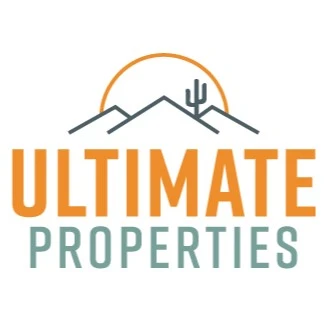Arizona just passed two new bills—HB2447 and HB2110—that could be a major turning point for housing development across the state. Designed to tackle anti-housing local policies, these laws aim to significantly cut red tape, reduce project delays, and make it easier for investors to bring much-needed multifamily housing to Arizona communities.
This article will explain what each law does, how they work together, and what it all could mean for the future of housing, development, and investment in Arizona.
Here are the two new laws every Arizona real estate investor should know about.
HB2447 - Speeding Up the Approval Process
HB2447 focuses on simplifying the approval process for housing and development projects, especially in large cities like Phoenix, Tucson, and Mesa. Too often, developers face delays tied to local bureaucracy, outdated procedures, and inconsistent design reviews. HB2447 directly tackles these roadblocks.
The bill mandates faster response times from city staff, allows for more submittals, and limits the number of times a project can be reviewed before being approved. By emphasizing administrative approval rather than requiring endless council hearings, this bill empowers cities to act faster without sacrificing oversight.
One key element is that projects with strong compliance histories can move forward more efficiently. Additionally, final plats can now be processed with fewer limitations, and lot line adjustments will no longer trigger full-blown approval cycles. This should reduce project delays and lower the costs for developers and investors.
Other reforms include clearer rules for public records and notice procedures, and tighter controls on expenditures and fees related to development. The act also sets guidelines on the disclosure of contributions, appropriations, and exemptions.
HB2110 - Open Commercial Land for Multifamily Housing
HB2110 takes a bold step by unlocking commercial areas for multifamily housing development. Specifically, it allows mixed-use parcels eligible for redevelopment to include residential units. This is crucial in cities where land is limited and housing demand is rising.
This bill opens the door for adaptive reuse—converting old office, motor vehicle, or even firearm sales buildings into livable spaces. The result? Underused public property and commercial zones can now become vibrant, livable areas, contributing directly to Arizona's housing supply.
HB2110 overrides some anti-housing local policies, preventing cities and councils from placing unreasonable restrictions on these projects. The bill also includes a prohibition on using outdated zoning to block developments that meet state criteria.
Importantly, it defines which key development documents are needed and clarifies the role of the state department, school districts, and higher education facilities in evaluating proposals. It also outlines how natural resources, employment, assessment, and other improvements must be considered, promoting a more balanced and transparent process.
This bill also works to reduce liability risks for developers by simplifying disclosure and aligning certain areas with federal law and state-level taxation rules. These include a revised tax rate, exemption clauses, and consistent duties regarding services and public fund use.
How These Laws Work Together
Together, HB2447 and HB2110 form a powerful toolset for making Arizona more development-friendly. HB2447 tackles procedural issues like delays, outdated rules, and burdensome fees. Meanwhile, HB2110 attacks land-use challenges by expanding where multifamily housing can be built and protecting investors from unfair regulations.
By removing restrictions, offering clear guidelines, and shifting toward administrative approval, these two new bills encourage faster, more predictable housing development. They also strengthen investor confidence by reducing risk tied to liability, compliance, and tax exposure.
What This Could Mean Over Time
If implemented correctly, these laws could help redevelopment efforts flourish in key areas of Arizona. With fewer limitations and reduced red tape, housing projects can break ground sooner, especially in underutilized zones.
Over time, expect to see:
- More multifamily housing developments in former commercial or mixed-use spaces.
- Quicker project timelines, thanks to reduced submittals allowed and fewer design reviews.
- A rise in adaptive reuse projects, including conversions of older office buildings or public property into housing.
- Enhanced collaboration between city staff, school districts, and the state department.
The emphasis on public records, procedures, and disclosure ensures that the public remains informed, while still promoting development. The bills also encourage coordination across education, motor vehicle, and even workers compensation sectors to help align growth with community needs.
A Step Toward Solving Arizona’s Housing Crisis
Arizona’s population continues to grow, and demand for housing, especially affordable options, is rising fast. These two new laws, HB2447 and HB2110, are a strong signal that the state wants to support investors, builders, and planners who are ready to take action.
By cutting red tape, speeding up reviews, and opening more land for multifamily housing, Arizona is trying to shift from delay-heavy regulation to a system that encourages responsible growth.
Yes, there are risks. Any change this big brings up questions about oversight, fairness, and the role of government. But if done right, these laws could make it easier to get projects off the ground, especially in markets where costs, fees, and regulations have kept good developments from moving forward.
Looking to invest in Arizona real estate or expand your rental portfolio? With over 35 years of experience, Ultimate Properties is here to help you navigate housing laws, property management, and development strategies. Let’s build something great together—contact us today!
Frequently Asked Questions
- What is the main change brought by HB2447?
HB2447 allows city staff to approve key development documents, like site plans and lot line adjustments, starting January 1, 2025. This change will help reduce project delays and speed up the project approval, potentially getting housing projects up and running faster. - How does HB2110 affect commercial land use?
HB2110 requires cities with 150,000+ residents to make at least 10% of their commercial parcels available for multifamily housing. This directly targets places with anti-housing local policies, like Scottsdale, and aims to open up more land for housing development. - What are the potential risks of these laws?
While these laws aim to simplify the application process and increase the availability of housing, some argue they could reduce local control and oversight. It’s essential to find a balance between speeding up development and ensuring that communities have a say in how their areas grow.
More Resources:
- Common Mistakes Made When Managing Your Own Rental Property & How to Avoid Them
- Current Market Trends in Phoenix, AZ: A Comprehensive Overview
- Should I Rent My Investment Property Furnished? Pros, Cons & Considerations


